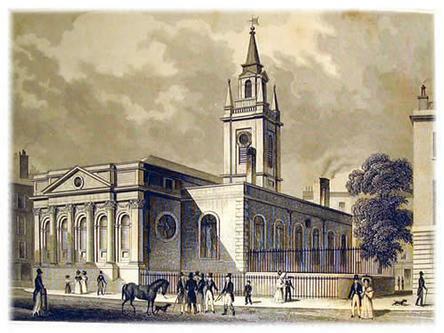St Lawrence Jewry is so called because the original twelfth century church stood on the eastern side of the City, then occupied by the Jewish community. That church, built in 1136, was destroyed in the Great Fire of London of 1666. The building which replaced it was designed by Sir Christopher Wren in 1680. Almost completely destroyed by fire in 1940 this time as the result of action by the King's enemies, it was restored in 1957 in the tradition of Wren's building. St Lawrence Jewry is now the church of the Corporation of London.
This section lists the memorials where the subject on this page is commemorated:
St Lawrence Jewry
Commemorated ati
Guildhall Yard fountain
The inscription text is taken from a modern (and indeed rather nasty) plaque ...
St Lawrence Jewry - board
St Lawrence Jewry St Lawrence Jewry is so called because the original twelft...
St Lawrence Jewry - weather vane
The weather vane depicts a grid-iron, the instrument used for the torture whi...
Other Subjects
Lyon Cawch
Burnt at the stake in Bow (or possibly Stratford) for his Protestant beliefs.
St Olave Hart Street - Parish Hall
St Olave Hart Street (only a short walk from this Hall) was badly damaged in WW2 so in 1948 a pre-fabricated church was constructed here, using the tower of All Hallows Staining as its chancel. Th...
St Mary Axe Church
Its full name was the Church of St Mary, St Ursula and her 11,000 Virgins. The origin of the nick name supposedly derives either from a sign of an axe over the east end of the church or from a reli...
Henry Geard
One of the Deacons at the Wandsworth chapel who provided lectures and popular entertainments during the week for the working classes. Active in 1883.






Comments are provided by Facebook, please ensure you are signed in here to see them